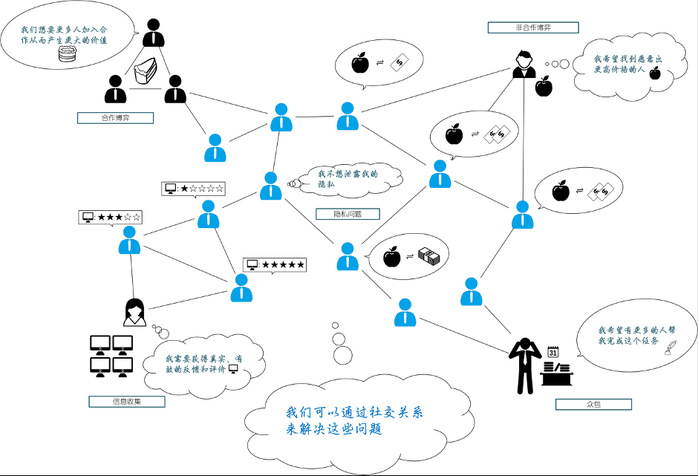Recently, SIST Professor Zhao Dengji’s paper entitled “Mechanism Design Powered by Social Interactions” was accepted by the 20th International Joint Conference on Autonomous Agents and Multi-Agent Systems (AAMAS-2021), Blue Sky Ideas Track. Unlike other technical paper reviewing processes, the emphasis of this track is on visionary ideas, long-term challenges, new research opportunities and controversial debate. The average number of accepted papers in this track is less than ten each year. In this accepted paper, Professor Zhao, for the first time, systematically framed a mechanism design framework based on social networks and opened the floor for discussing the fundamental open questions.
The proposed framework is designed to overcome the shortcomings of the traditional mechanism design. In the traditional settings, it is often assumed that the set of participants is fixed and independent, and known to the mechanism (the market owner) in advance. However, in practice, the market owner can only directly reach a small number of participants (his or her neighbors). Hence the owner often needs costly promotions to recruit more participants in order to get desirable outcomes. Moreover, people nowadays are well-connected because of the development of social networks. The framework is proposed to incentivize existing participants to invite their neighbors to attract more participants. However, they would not invite each other if they are competitors. The paper discusses how to utilize the conflict of interest between the participants to incentivize them to invite each other to form larger markets, especially, in the settings of resource allocation, task allocation, matching and voting.
In resource allocation (auctions), a larger market will discover more participants’ valuations/demand and increase social welfare or the seller’s revenue. The main challenge is to ask participants to invite other participants to compete for the same resources. To combat this challenge, Professor Zhao’s team has proposed a set of early solutions and published a number of high quality papers. There are still many open questions to be addressed.
In task allocation (coalitional games), a larger group of participants creates larger coalitions (better outcomes/utilities). For example, in a research project, it is always good to add someone with different skills to the team. However, the newly added member might also have some skills which the team already has, which creates a competition for the reward sharing among the participants. Classical methods such as Shapley value cannot solve the problem. Professor Zhao’s team proved that a combination of weighted Shapley value and permission structure can offer the invitation incentives. They also showed that the winning solution for the DARPA 2009 Network Challenge is a special example. This research direction is still underexplored.
In matching, a larger group of participants makes more satisfiable matchings, e.g., larger exchange cycles. Just as in resource allocation, newly invited participants may compete with their inviters for the match. Professor Zhao’s group has proved that the existing matching mechanisms such as Top Trading Cycle and Gale–Shapley cannot work in the new setting. We need to further investigate new mechanisms to solve the incentive issue.
In voting (social choice), when we have more voters to vote, it will not only increase the turnout rate but also make the voting results harder to manipulate. The challenge is that a voter would not invite someone with different preferences. We need new voting mechanisms which not only incentivize voters to invite each other but also make the final voting result reflect the preferences of the majority. If such a mechanism exists, it may eliminate the unfairness problem for voting conducted via social networks, but no solution has been found yet.
The above-mentioned domains consist of very rich economic activities, such as social welfare distribution, mobile senescing, crowdsourcing, online questionnaires and so on. The related research needs more scholars with continuous effort, which will build the theoretical foundation of social economy and support the sustainable development of social economy. It is also an important field at the intersection of computation and economics.
Link to the accepted paper: http://arxiv.org/abs/2102.10347

Figure:Mechanism design problems of social networks